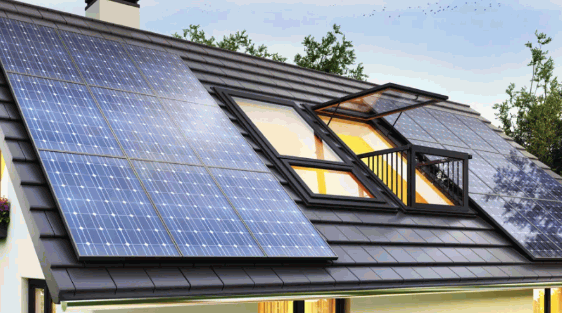
Curious about how solar panels can benefit your home?
From reducing electricity bills to increasing property value, these innovative panels offer a range of advantages.
We'll explore the different types of solar panels available, how they work, and the steps to install them in your home.
Whether you're looking to go green or save money on energy costs, solar panels could be the solution you've been searching for.
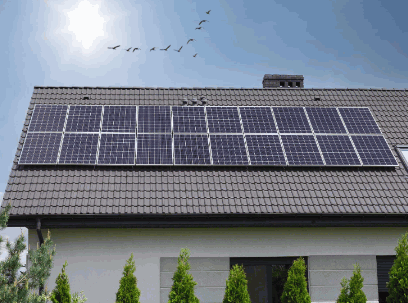
Table of Contents
Solar panels are devices that capture sunlight and convert it into electricity through the photovoltaic effect. They are a key component of solar energy systems that harness renewable energy from the sun.
Solar panels play a crucial role in reducing our dependence on fossil fuels and mitigating the harmful effects of traditional energy sources on the environment. By utilizing the photovoltaic effect, these panels convert sunlight directly into electricity without generating any harmful emissions.
This technology involves the interaction of photons with semiconductors within the panels, creating an electric current that can be harnessed for powering homes, businesses, and even entire cities. The efficiency and affordability of solar panels have greatly improved over the years, making them a viable and sustainable energy solution for the future.
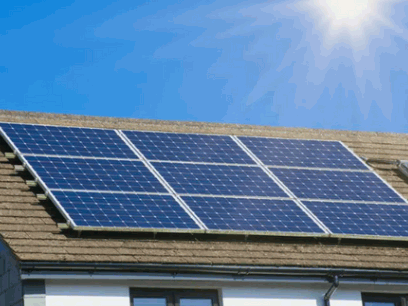
Solar panels work by absorbing sunlight, which is then converted into electricity through the photovoltaic process. This electricity can be used to power homes and businesses, or it can be fed back into the grid for credit.
When sunlight hits the solar panels, the photovoltaic cells within the panels generate direct current (DC) electricity. This energy needs to be converted into alternating current (AC) electricity, which is the type of electricity used in homes and businesses. An inverter is installed to transform the DC into AC power. The excess electricity produced can be sent back to the grid through a process known as net metering. Net metering allows consumers to receive credits for the excess energy they generate, making solar energy not only sustainable but also economically advantageous.
Dig deeper: Does Solar Panels Work At Night
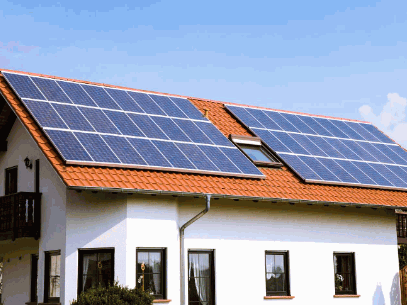
Installing solar panels in your home can provide numerous benefits, including reducing electricity bills, increasing property value, and qualifying for tax incentives and savings over time.
One of the key advantages of having solar panels is the substantial cost savings they offer. By leveraging the capabilities of the sun, homeowners can significantly reduce their reliance on traditional electricity sources, leading to lower energy bills in the long run. Many governments and utilities offer tax credits and rebates to incentivize the adoption of solar energy, further enhancing the financial benefits. Solar energy is a clean, renewable resource that helps reduce carbon footprint and environmental impact, making it a sustainable choice for eco-conscious homeowners.
One of the primary benefits of solar panels is their ability to significantly reduce electricity bills by offsetting traditional grid power usage with clean energy generated from the sun.
Not only do solar panels help in lowering monthly energy costs, but they also contribute to a more sustainable and eco-friendly lifestyle. By leveraging the capabilities of the sun, households and businesses can decrease their reliance on fossil fuels, thereby reducing their carbon footprint. This shift towards renewable energy sources not only has immediate financial benefits but also aligns with long-term environmental goals.
Another key benefit of solar panels is that they can increase the value of your property, especially if you have a well-designed and efficient solar power system installed.
When considering the impact of solar panels on property value appreciation, it's essential to understand that the quality of the system plays a crucial role. A top-notch solar power system not only reduces energy costs but also adds to the overall appeal of your home in the real estate market. Potential buyers are increasingly attracted to properties equipped with high-quality solar technology, viewing them as forward-thinking investments that offer long-term savings and environmental benefits.
Solar panels offer a sustainable and environmentally friendly source of clean energy by utilizing the sun's abundant and renewable resources to power homes and reduce reliance on fossil fuels.
They play a crucial role in advancing the global shift towards clean energy consumption and are a key element in the transition to a more sustainable future. By harnessing sunlight to generate electricity, solar panels help to significantly reduce greenhouse gas emissions and combat climate change.
Solar power is a crucial component in building a greener energy infrastructure that minimizes our carbon footprint and lessens our impact on the environment. It provides an efficient and cost-effective means of producing electricity without harming the planet.
By installing solar panels, homeowners may qualify for various tax incentives, such as the federal solar tax credit and state-specific incentives, which can significantly reduce the overall cost of a solar system.
One of the key tax incentives for homeowners looking to go solar is the federal solar tax credit, which allows them to deduct a percentage of their solar system costs from their federal taxes. This credit can amount to substantial savings, making solar energy more accessible and affordable.
Along with federal incentives, many states offer their own solar incentives to further support the adoption of renewable energy. These state-specific programs vary widely but often include rebates, tax credits, and performance-based incentives that can make investing in solar panels even more cost-effective.
To leverage these financial benefits, homeowners should research and understand the tax incentives available in their area, as well as consult with solar installation companies that can provide guidance on maximizing savings through incentives.
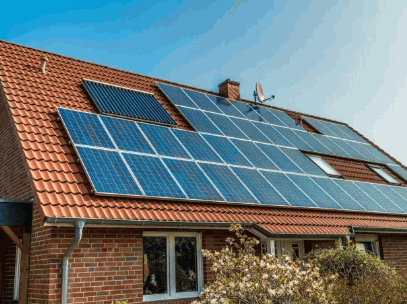
There are several types of solar panels available, including monocrystalline, polycrystalline, and thin-film options, each with unique characteristics and suitability for different applications.
Monocrystalline solar panels are known for their high efficiency, making them ideal for areas with limited roof space or high electricity requirements. They are more expensive compared to polycrystalline panels, but they are also more space-efficient and perform better in low-light conditions.
On the other hand, polycrystalline panels are more budget-friendly and have a lower efficiency rate than monocrystalline panels. They are a good option for larger installations where space is not a constraint and cost-effectiveness is a priority.
Thin-film solar panels are the lightest and most flexible option, making them suitable for unconventional installations such as curved surfaces or portable setups. They have lower efficiency and degrade faster than crystalline panels, making them less suitable for long-term investments.
Monocrystalline solar panels are known for their high efficiency and power output, making them an ideal choice for homeowners seeking maximum electricity generation from limited roof space.
One of the key advantages of monocrystalline solar panels is their ability to convert sunlight into electricity at a higher rate compared to other types of solar panels, such as polycrystalline or thin-film. This higher efficiency means that monocrystalline panels can produce more power for the same amount of sunlight, which is especially beneficial for residential solar power systems where every bit of energy matters. Monocrystalline panels tend to have a longer lifespan and better performance in low-light conditions, ensuring consistent power generation throughout the day.
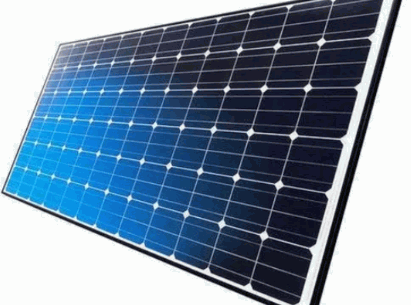
Polycrystalline solar panels are cost-effective and offer good performance in various lighting conditions, making them a popular choice for solar setups that prioritize budget-friendly installations.
One of the key advantages of polycrystalline solar panels is their affordability compared to monocrystalline panels, making them accessible to a wider range of consumers looking to harness solar energy. Their versatility allows them to perform well in both direct sunlight and partial shading scenarios, making them suitable for residential rooftops, off-grid cabins, and commercial installations alike.
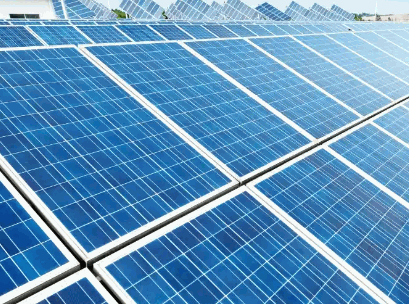
Thin-film solar panels are lightweight and flexible, allowing for unique installation options and performance in low-light settings, making them suitable for locations with varying solar radiation levels.
Unlike traditional solar panels, thin-film solar panels are extremely versatile due to their lightweight and flexibility, enabling them to be integrated into a wider variety of settings. Their adaptability allows for installation on curved surfaces, rooftops with limited load-bearing capacity, and even portable applications.
The efficiency of thin-film solar panels is remarkably high, especially in low-light conditions. They can generate electricity even when the sun's rays are not at their peak, making them a practical choice for regions with unpredictable weather patterns.
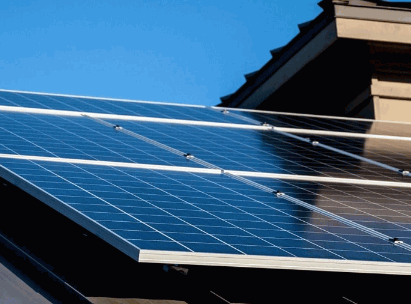
Installing solar panels on your home involves several key steps, including determining your energy needs, selecting the right type of solar panel, finding a qualified installer, obtaining necessary permits, and connecting the panels to your home's electrical system.
Once you have assessed the energy requirements of your household, the next crucial step is choosing the most suitable type of solar panel for your specific needs. Factors such as efficiency, size, and budget should all be taken into consideration.
Searching for a reputable and skilled installer is essential to ensure a high-quality installation and optimal performance of your solar energy system. Don't forget to acquire the required permits from your local authorities to comply with regulations and safety standards.
The connection of the panels to your home's electrical system is the last step in the installation process, requiring precision and expertise to guarantee a seamless integration of solar power into your household.
Before installing solar panels, it is crucial to assess your energy needs to determine the size and capacity of the solar system required, considering factors such as your average energy consumption and available roof space.
By evaluating your energy requirements accurately, you can avoid the common pitfall of undersizing or oversizing your solar system. Estimating system costs based on your energy consumption is a key step in this process. This involves factoring in the initial investment for solar panels, inverters, batteries (if needed), and installation costs.
To maximize the solar panel capacity for efficiency, consider the orientation and tilt angle of your panels to capture the most sunlight. Regular maintenance checks can also ensure that your system operates optimally and that any issues are addressed promptly.
Selecting the appropriate type of solar panel is essential for meeting your energy goals and budget constraints, requiring consideration of factors such as efficiency, durability, and compatibility with your installation setup.
In terms of efficiency, monocrystalline solar panels are known for their high-efficiency rates, making them ideal for installations with limited space. On the other hand, polycrystalline solar panels are more cost-effective but slightly less efficient, making them a great option for those looking to balance performance and cost.
In terms of durability, thin-film solar panels are lightweight and flexible, making them suitable for curved surfaces or installations where weight is a concern. They may not have the same lifespan as crystalline panels.
Hiring a qualified solar installer is crucial for ensuring the proper design, installation, and performance of your solar panel system, as experienced professionals can deliver high-quality workmanship and system reliability.
When selecting a solar installer, it's essential to vet potential candidates thoroughly. Look for a company with a proven track record in solar panel installations, positive customer reviews, and industry certifications. Reputable installers will offer warranties on both labor and equipment, ensuring peace of mind in case of any issues down the line. Expertise and certification are key factors that can help guarantee a successful solar panel installation, providing you with an efficient and reliable energy solution for years to come.
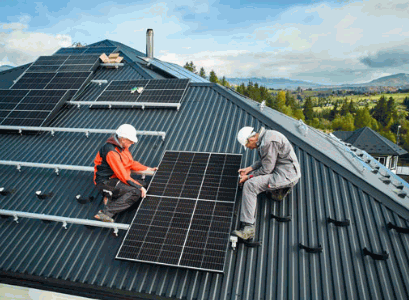
Securing the required permits for solar panel installation is a critical step to ensure compliance with local regulations and building codes, facilitating a smooth and legally sound implementation of your solar energy system.
When embarking on a solar panel project, navigating the permitting process can seem overwhelming at first glance. By understanding the common permit requirements and procedures, individuals can more confidently proceed with their installation. Typically, permit applications involve providing detailed project plans, such as the solar panel layout, electrical wiring diagrams, and structural considerations. Local jurisdictions may also require site assessments to assess factors like property lines and shading. Keeping abreast of these requirements and engaging proactively with local authorities can streamline the approval process and ensure a successful installation.
The final phase of installing solar panels involves mounting the panels on your roof, connecting them to an inverter, and integrating the system with your home's electrical grid to start generating clean, renewable energy.
Once the panels are securely positioned on the roof, the next step is crucial - connecting them to an inverter. Inverters play a vital role in the process by converting the direct current (DC) electricity generated by the solar panels into alternating current (AC) usable by your home appliances.
After the panels and inverters are in place, the final piece of the puzzle is integrating the system with your home's electrical grid. This connection ensures that the excess electricity produced by your solar panels can be fed back into the grid, allowing you to earn credits for the energy you contribute, as well as ensuring uninterrupted power supply when your panels are not generating electricity.